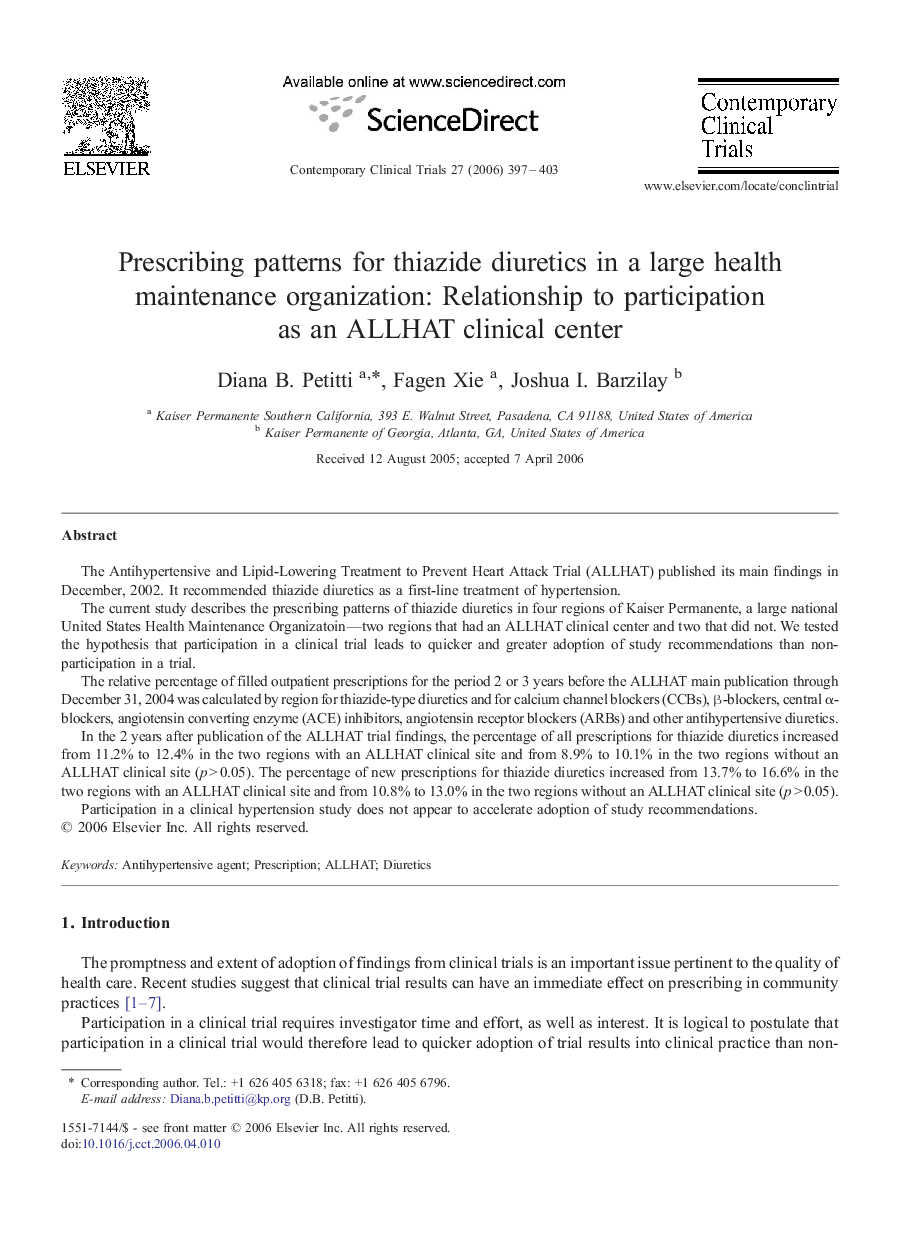| Article ID | Journal | Published Year | Pages | File Type |
|---|---|---|---|---|
| 3463448 | Contemporary Clinical Trials | 2006 | 7 Pages |
The Antihypertensive and Lipid-Lowering Treatment to Prevent Heart Attack Trial (ALLHAT) published its main findings in December, 2002. It recommended thiazide diuretics as a first-line treatment of hypertension.The current study describes the prescribing patterns of thiazide diuretics in four regions of Kaiser Permanente, a large national United States Health Maintenance Organizatoin—two regions that had an ALLHAT clinical center and two that did not. We tested the hypothesis that participation in a clinical trial leads to quicker and greater adoption of study recommendations than non-participation in a trial.The relative percentage of filled outpatient prescriptions for the period 2 or 3 years before the ALLHAT main publication through December 31, 2004 was calculated by region for thiazide-type diuretics and for calcium channel blockers (CCBs), β-blockers, central α-blockers, angiotensin converting enzyme (ACE) inhibitors, angiotensin receptor blockers (ARBs) and other antihypertensive diuretics.In the 2 years after publication of the ALLHAT trial findings, the percentage of all prescriptions for thiazide diuretics increased from 11.2% to 12.4% in the two regions with an ALLHAT clinical site and from 8.9% to 10.1% in the two regions without an ALLHAT clinical site (p > 0.05). The percentage of new prescriptions for thiazide diuretics increased from 13.7% to 16.6% in the two regions with an ALLHAT clinical site and from 10.8% to 13.0% in the two regions without an ALLHAT clinical site (p > 0.05).Participation in a clinical hypertension study does not appear to accelerate adoption of study recommendations.
